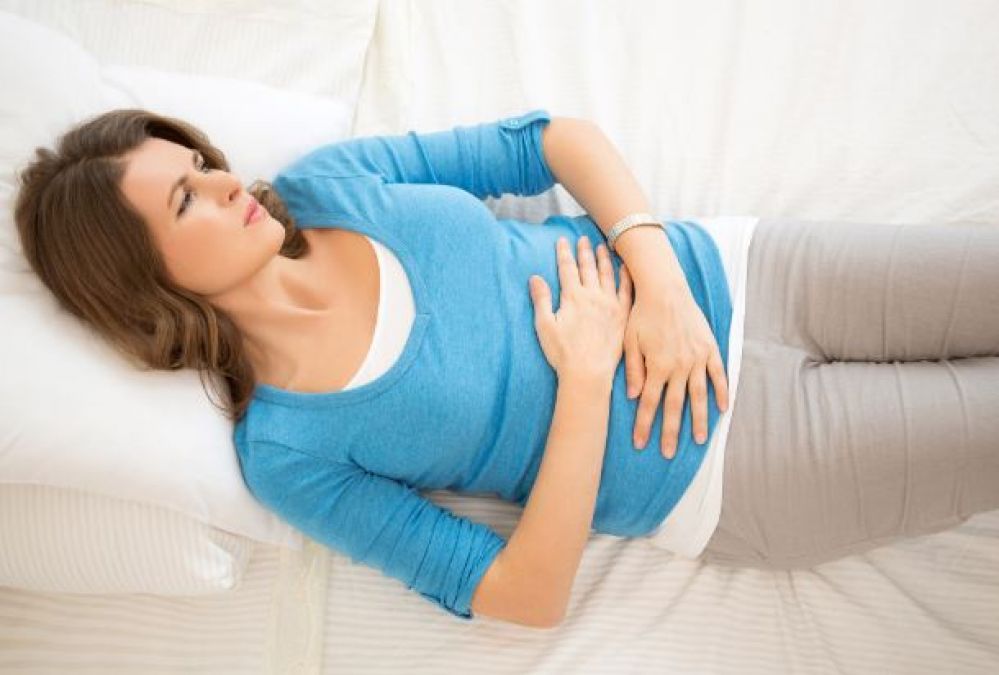
World Menopause Day, observed annually on October 18th, serves as a global platform to raise awareness about menopause, known as 'Rajonivrutti' in Hindi. The purpose of this observance is to enlighten women about the various challenges associated with menopause. As women age, their bodies undergo numerous hormonal changes, and menopause signifies the natural cessation of menstruation.
Understanding Pre-Menopausal Menopause:
Pre-menopausal menopause refers to the early onset of menopause, usually occurring between the ages of 45 and 55. During this phase, the production of eggs from the ovaries declines, resulting in decreased estrogen levels. Estrogen, a vital hormone for regulating the reproductive cycle, diminishes, leading to the cessation of menstrual periods at a relatively younger age. Consequently, the probability of conceiving decreases significantly during this phase. Lifestyle and dietary factors often contribute to the manifestation of pre-menopausal symptoms.
Causes of Pre-Menopause:
Various factors contribute to pre-menopause, including ovarian surgery, radiation treatment for certain illnesses, excessive alcohol consumption, smoking, chemotherapy, and genetic predispositions. Moreover, certain autoimmune conditions or syndromes prevalent in women can also prompt the onset of menopause at an earlier age than usual.
Symptoms of Pre-Menopause:
Symptoms of Pre-Menopause can manifest differently in women, and their severity may vary. These symptoms typically begin to emerge around six to seven months before the onset of menopause and can persist throughout the transition period. Understanding the nuances of these symptoms is crucial in recognizing and managing pre-menopausal changes. Here is a more detailed breakdown of the symptoms:
Irregular Periods: Women may experience irregularities in their menstrual cycles, such as unusually heavy or light flow, erratic cycle lengths, or skipped periods.
Emotional Changes: Heightened irritability, mood swings, and unexplained emotional fluctuations may occur due to the hormonal shifts taking place in the body.
Hot Flashes and Night Sweats: Sudden, intense feelings of heat, often accompanied by sweating, can disrupt sleep and daily activities, making women feel uncomfortable and distressed.
Vaginal Discomfort: Dryness, itching, and a general feeling of discomfort in the vaginal area can arise due to reduced estrogen levels, leading to changes in vaginal tissue.
Breast Tenderness: Women may experience mild to moderate breast tenderness or swelling, often accompanied by sensations of heaviness or fullness in the breasts.
Increased Sensitivity to Heat: Women may become more sensitive to temperature changes, especially feeling excessively hot or experiencing heightened discomfort in warm environments.
Sexual Discomfort: Reduced libido or a decrease in sexual desire is a common symptom, often attributed to the hormonal fluctuations affecting sexual health and overall well-being.
Physical Fatigue: Persistent and unexplained fatigue, not necessarily linked to increased physical activity, may occur due to the body's adjustments to changing hormone levels.
Sleep Disturbances: Women may experience difficulties falling or staying asleep, often due to the occurrence of night sweats, hot flashes, or emotional fluctuations affecting sleep patterns.
Mental Health Changes: Increased stress, anxiety, and difficulty in coping with daily challenges can occur, impacting overall mental well-being during the pre-menopausal phase.
Ways to Manage Pre-Menopause:
Navigatin the pre-menopausal phase can be challenging, but implementing effective strategies can significantly ease the transition and promote overall well-being. Here are detailed ways to manage pre-menopause:
Maintaining a Nutritious Diet:
Balanced Nutrition: Ensuring a diet rich in whole grains, lean proteins, fruits, and vegetables is essential for maintaining overall health.
Calcium and Vitamin D Intake: Incorporating dairy products, leafy greens, and fortified cereals into the diet can help offset the risk of osteoporosis that often accompanies menopause.
Phytoestrogen-Rich Foods: Consuming foods containing phytoestrogens, such as soy products, flaxseeds, and legumes, can help regulate estrogen-like effects in the body.
Regular Exercise Routine:
Cardiovascular Exercises: Engaging in regular cardiovascular exercises, such as walking, swimming, or cycling, can help improve heart health and overall physical endurance.
Strength Training: Including strength training exercises can help maintain muscle mass, bone density, and overall physical strength.
Yoga and Meditation: Practicing yoga and meditation can aid in stress reduction, promote emotional well-being, and improve overall mental health.
Managing Body Weight:
Healthy Weight Management: Prioritizing a healthy and balanced diet alongside regular physical activity is vital for managing body weight during the pre-menopausal phase.
Portion Control: Being mindful of portion sizes and avoiding overeating can help regulate calorie intake and prevent weight gain.
Stress Management Techniques:
Mindfulness and Relaxation: Incorporating mindfulness-based practices, such as deep breathing exercises, meditation, and progressive muscle relaxation, can effectively reduce stress levels.
Hobbies and Leisure Activities: Engaging in hobbies, recreational activities, or creative pursuits can serve as effective stress-relievers and promote a sense of fulfillment and happiness.
Healthy Sleep Habits:
Establishing a Routine: Maintaining a consistent sleep schedule by going to bed and waking up at the same time each day can promote better sleep quality and overall well-being.
Creating a Restful Environment: Designing a comfortable sleep environment by minimizing noise, light, and distractions can significantly improve sleep quality.
Hydration and Balanced Fluid Intake:
Water Consumption: Ensuring adequate hydration by drinking plenty of water throughout the day can help maintain optimal bodily functions and promote overall health.
Limiting Caffeine and Alcohol: Reducing the consumption of caffeinated beverages and alcoholic drinks can prevent dehydration and minimize the risk of triggering hot flashes and other menopausal symptoms.
Consulting a Healthcare Professional:
Regular Check-ups: Scheduling regular visits with a healthcare provider can facilitate the monitoring of overall health and well-being during the pre-menopausal phase.
Medication and Hormone Therapy: Consulting a healthcare professional for guidance on the potential benefits and risks of hormone replacement therapy or other medications can provide effective symptom relief for some women.
By incorporating these comprehensive strategies into daily life, women can effectively manage the challenges associated with pre-menopause and maintain a healthy and fulfilling lifestyle. It is essential to recognize the uniqueness of each individual's experience and tailor these approaches according to personal needs and preferences.
Menopause Emerges as a Significant Risk Factor for Heart Disease: Study
Mental Hai Kya Becomes Judgmental Hai Kya Amid Controversy
Do you ever put the old charger in the new phone? Know the disadvantages